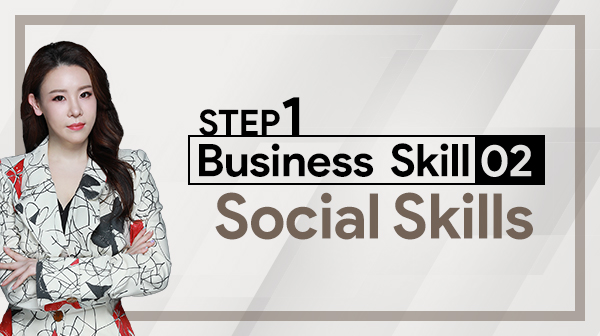-
- ņśüņ¢┤
- Sel TEST
- English Hub
- Speaking TIP
- Culture Story
- Business Writing
- ņØ╝ļ│Ėņ¢┤
- Sel TEST
- Japan Hub
- ņżæĻĄŁņ¢┤
- Sel TEST
- Chinese Hub
- ņżæĻĄŁ ņĄ£ņŗĀ ļē┤ņŖż
- The China+
- ĻĘĖļ”¼ņŖżņ¢┤
- ļäżĒīöņ¢┤
- ļÅģņØ╝ņ¢┤
- ļØ╝ņśżņŖżņ¢┤
- ļ¤¼ņŗ£ņĢäņ¢┤
- ļŻ©ļ¦łļŗłņĢäņ¢┤
- ļ¬ĮĻ│©ņ¢┤
- ļ»Ėņ¢Ćļ¦łņ¢┤
- ļ¦ÉļĀłņØ┤ņ¢┤
- ļ▓ĀĒŖĖļé©ņ¢┤
- ļ▒ģĻ│©ņ¢┤
- ļČłĻ░Ćļ”¼ņĢäņ¢┤
- ņŖżņÖĆĒ×Éļ”¼ņ¢┤
- ņŖżĒÄśņØĖņ¢┤
- ņŗ▒ĒĢĀļØ╝ņ¢┤
- ņĢäļ׏ņ¢┤
- ņĢäļź┤ļ®öļŗłņĢäņ¢┤
- ņĢäņĀ£ļź┤ļ░öņØ┤ņ×öņ¢┤
- ņĢöĒĢśļØ╝ņ¢┤
- ņÜ░ļź┤ļæÉņ¢┤
- ņÜ░ņ”łļ░▒ņ¢┤
- ņÜ░Ēü¼ļØ╝ņØ┤ļéśņ¢┤
- ņØ┤ļ×Ćņ¢┤
- ņØ┤Ēāłļ”¼ņĢäņ¢┤
- ņØĖļÅäļäżņŗ£ņĢäņ¢┤
- ņ▓┤ņĮöņ¢┤
- ņ║äļ│┤ļööņĢäņ¢┤
- Ēéżļź┤ĻĖ░ņŖżņ¢┤
- ņ╣┤ņ×ÉĒØÉņ¢┤
- Ēā£ĻĄŁņ¢┤
- Ēä░Ēéżņ¢┤
- Ēł¼ļź┤Ēü¼ļ¦żļŗłņŖżĒāäņ¢┤
- Ēżļź┤Ēł¼Ļ░łņ¢┤
- ĒÅ┤ļ×Ćļō£ņ¢┤
- Ēöäļ×æņŖżņ¢┤
- ĒŚØĻ░Ćļ”¼ņ¢┤
- Ē×īļööņ¢┤
- ļ©╝ļéśļØ╝ ņØ┤ņøāļéśļØ╝
-

Culture Story
Ļ▓īņŗ£ĻĖĆ ņłś | 419
Ļ┤ĆļĀ© Ļ░Ģņóī ņłś | 174
- Our Smartphone is the WorldŌĆÖs Biggest Spy
- HSG | 2016.05.09 09:13
-
Our Smartphone is the WorldŌĆÖs Biggest Spy

Pre discussion questions
How do you feel about smartphones and personal information?
What information about you is okay for other people to know about you?
We seldom stop to think about the personal information we are always transmitting to the world from the phone in our pocket. Every place we go, every cell tower we pass has the ability to record information. It is able to record where we have been. We do not think about this until an unsolicited message sends an advertisement to us. The advertisement seems to know where we go what are our preferences. And that happens so much now that we donŌĆÖt think a lot about it.
Technology companies probably know us better than we know ourselves. They are recording our habits. They are recording where we go and more. It seems fun in some ways but uncomfortable in other ways.
The start of social media has shown that for most people privacy is less important than telling everyone what we do and like. We can be the stars of our own movie. By posting photos of every interesting thing we see, eat or want, tweeting about our lives we tell the world about ourselves.
We count how famous we are by how many likes we get.
Sixty six percent of people go on to sites such as Facebook every day. And 85 per cent of us now use social media. It is no longer only the young. Research done by a university last year found more than 33% of people over 65 have a Facebook account.
If you donŌĆÖt have one, you may feel that the world is forgetting you. And maybe you are not wrong. Receiving your news for everyone to see may make you feel that the government spy agencies were the biggest monitors of those personal recorders called mobile phones. But not now. Now, Facebook may be holding more information about more people than a spy agency.
Your phone gives companies information about where you go, your job, the sound of your voice, your family and friends. It gives information about the time and place you buy and use their products and your recorded messages. Also about what you are looking at on the internet.
It is possible, they say, to use privacy settings to restrict some of this, but why worry? Unless you are a famous public person, nobody cares.
Your life is an open book only your friends will read. Unless you do something that comes into the news. Then yourselfies and texts will probably appear in the mass media.
Try to guess the meaning of the words in bold and match them with their closest meaning from the choices in the right. Some of the answers are very close and have similar meaning. The meaning of these words is how they are used in the reading. Some of these words have different meanings in the dictionary depending on how they are used.
The answers are below the table.
seldom
A
1
Almost never
transmitting
B
2
To watch and keep a record off something
unsolicited
C
3
To take a photo of yourself
preferences
D
4
Not asked for, a kind of interruption
monitors
E
5
Not hidden, easy to see, clear and not confusing, honest
restrict
F
6
To stop or control
open book
G
7
The thing/s that is/are liked the most
selfies
H
8
To send a message, to send from person or thing to the next
A=1, B=8, C=4, D=7, E=2, F=6, G=5, H=3
Some example sentences using the new words or phrases from the meaning of how they are used in the reading to help you understand better.
1. It seldom rains in the Saudi desert.
2. The subway can be bad because people can transmit sickness to other people easily.
3. People are trying to sell unsolicited things in the street by stopping us as we leave the subway station.
4. My preference is to wake up early to get there on time.
5. The police are monitoring the criminals.
6. You are restricted from selling alcohol at this place.
7. He has an open book personality, because you can ask him anything.
8. I bought this selfie stick for $5.
Some questions using the new words/phrases. Try to use the words/phrases in your answer.
1. Do you agree that you seldom think about who knows about your information from the phone?
2. What is your favorite way to transmit a message, by text of voice?
3. How do you feel about unsolicited advertising on your phone?
4. How do you feel about companies knowing your shopping preferences?
5. What laws should there be about who monitors your phone? And what restrictions should advertisers have?
6. How do you feel about your life being an open book on SNS sites?
7. Do you take a lot of selfies? Why?
- ņČöņ▓£Ļ░Ģņóī























